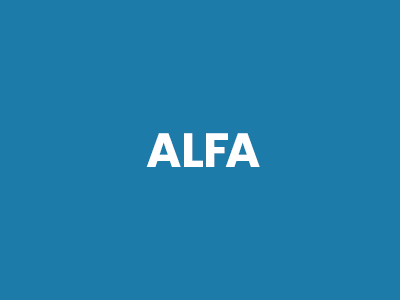
Bioplynové stanice už dlho nie sú iba zdrojom elektriny a tepla. Prinášajú aj ďalšie výhody - environmentálne, spoločenské, ale aj finančné.…
PEDAL Consulting is the top national SME performer with the most approved and successfully implemented grants under the Horizon 2020, Horizon Europe and COSME programmes of the European Commission. We dedicate our efforts to transforming great ideas from the lab into business-led market solutions. In such a way we can drive smart, sustainable, and inclusive growth and jobs.
There are many grant funding prospects from the European Commission and other international organisations. Mainly for startups, established companies as well large enterprises.
However, to access these grants can often prove to be challenging. Especially due to the very particular requirements of each call and the highly competitive nature of the application process.
How can we help you to overcome challenges grants could bring to you?
What we do are mainly the horizontal or cross cutting activities. PEDAL Consulting conducts different types of services such as:
We are more than happy to help you out with any of the above-mentioned services.
PEDAL Consulting unlocks solutions to companies interested in scaling up beyond their borders to realize their full potential. We aim to improve innovative SMEs´ access to alternative forms of finance. It is possible to achieve this goal through:
It is true that traditional funding methods are not always available to small businesses. And rarely are they the most (or, at all) lucrative. Fortunately, there are other options. Bellow you will find types of alternative financing provided in Europe.
Reward crowdfunding
Backers have an expectation that recipients will provide a tangible (but non–financial) reward or product in exchange for their contribution. Businesses post projects on a crowdfunding portal, targeting a certain amount of capital to raise. In return for donations, the business typically gives some type of (non financial) incentive/reward for participating.
Equity-based crowdfunding
Sale of registered security by mostly early–stage firms to investors. People (i.e. the ‘crowd’) invest in an early-stage company (not listed on a stock market) in exchange for shares in that company. A shareholder has partical ownership of a company and stands to profit should the company do well.
Debt crowdfunding
Lending by a group of investors through a platform to a business or individual. Investors receive shares for their investments and they know the company or founders.
Profit sharing crowdfunding
Model in which contributors receive a share in the profits of the business or royalties.
P2P business lending
Debt–based transactions between individual/ institutional investors and existing businesses, who are mostly SMEs. Small investments per company. Focus is on financial returns.
Invoice trading
Firms sell their invoices or receivables to a pool of individual or institutional investors.
Balance sheet Business Lending
Lenders bear the burden of the debt and don’t sell it off for risk reduction. When borrowers fail to pay their debts, balance sheet lenders take the borrowers’ assets to cover the unpaid portions.
Finance leasing
Type of lease in which a finance company is the legal owner of the asset for the duration of the lease.
Trade finance
The function of trade finance is to introduce a third-party to transactions. It removes payment and supply risk, i.e. the exporter is provided with receivables according to the agreement while the importer with extended credit.
Other crowdfunding platform
Any other type of crowdfunding that does not fit in the above listed categories.
Angel networks
Groups of investors who provide capital for the development of a business.
Venture Capital Funds
Investment funds that manage the money of investors who seek private equity stakes in enterprises with strong growth potential.
Venture debt
Debt financing provided to venture-backed companies by specialized bank or non-bank lenders. The aim is to fund working capital or capital expenses, such as purchasing equipment.
Family offices
A company that manages investments and trusts for a single family. The company’s financial capital is the family’s own wealth. A type of venture capital.

Bioplynové stanice už dlho nie sú iba zdrojom elektriny a tepla. Prinášajú aj ďalšie výhody - environmentálne, spoločenské, ale aj finančné.…

EASTGATEH2V – a pioneering European project to build a fully integrated Hydrogen Valley – officially kicked off on 10. April…

We would like to invite you to the hybrid networking event in Denmark designed for all stakeholders across the biogas…
Lorem ipsum dolor sit amet, consectetur adipiscing elit. Curabitur laoreet cursus volutpat. Aliquam sit amet ligula et justo tincidunt laoreet non vitae lorem. Aliquam porttitor tellus enim, eget commodo augue porta ut. Maecenas lobortis ligula vel tellus sagittis ullamcorperv vestibulum pellentesque cursutu.
Lorem ipsum dolor sit amet, consectetur adipiscing elit. Curabitur laoreet cursus volutpat. Aliquam sit amet ligula et justo tincidunt laoreet non vitae lorem. Aliquam porttitor tellus enim, eget commodo augue porta ut. Maecenas lobortis ligula vel tellus sagittis ullamcorperv vestibulum pellentesque cursutu.
Lorem ipsum dolor sit amet, consectetur adipiscing elit. Curabitur laoreet cursus volutpat. Aliquam sit amet ligula et justo tincidunt laoreet non vitae lorem. Aliquam porttitor tellus enim, eget commodo augue porta ut. Maecenas lobortis ligula vel tellus sagittis ullamcorperv vestibulum pellentesque cursutu.

Lorem ipsum dolor sit amet, consectetur adipiscing elit. Curabitur laoreet cursus volutpat. Aliquam sit amet ligula et justo tincidunt laoreet non vitae lorem. Aliquam porttitor tellus enim, eget commodo augue porta ut. Maecenas lobortis ligula vel tellus sagittis ullamcorperv vestibulum pellentesque cursutu.